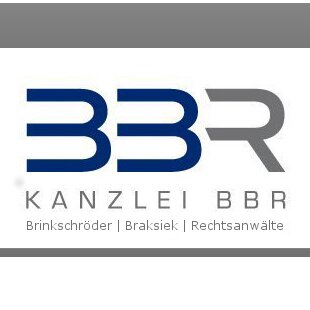Best Tax Lawyers in Osnabrück
Share your needs with us, get contacted by law firms.
Free. Takes 2 min.
List of the best lawyers in Osnabrück, Germany
About Tax Law in Osnabrück, Germany
Tax law in Osnabrück, Germany covers the legal requirements and obligations relating to taxes at the federal, state, and local levels. Located in the state of Lower Saxony, Osnabrück operates under national German tax regulations, while also adhering to specific municipal rules. Taxation covers various fronts, including income tax, business tax, value added tax (VAT), inheritance and gift tax, among others. Due to the complexity of German tax codes and regular legislative updates, both individuals and businesses often seek specialized legal advice to ensure compliance and optimize their tax positions.
Why You May Need a Lawyer
There are plenty of situations where consulting a tax lawyer in Osnabrück can be beneficial. Here are some common scenarios:
- Tax audits or investigations by the Finanzamt (tax authority)
- Facing charges of tax evasion or accusations of incorrect financial reporting
- Disputes over tax assessments or notices of additional payments
- Complex inheritance or gifting cases requiring proper tax planning
- Starting a new business, changing business form, or restructuring which impacts tax obligations
- International tax queries, especially for expats or companies operating cross-border
- Applying for tax benefits, exemptions or navigating tricky VAT questions
- Planning major financial transactions, such as property sales
- Handling overdue taxes and negotiating payment plans
- General tax optimization and compliance
In these situations, a specialized tax lawyer can help protect your rights, minimize liabilities, and ensure you fully understand your obligations.
Local Laws Overview
Taxation in Osnabrück is primarily governed by German federal statutes, including the Einkommensteuergesetz (Income Tax Act), Körperschaftsteuergesetz (Corporate Income Tax Act), Umsatzsteuergesetz (VAT Act), and Abgabenordnung (Fiscal Code). The city of Osnabrück also levies local taxes such as the Gewerbesteuer (trade tax) which is of particular interest to businesses. Residents must register with the relevant local tax office, the Finanzamt Osnabrück, to receive and fulfill tax obligations. Some local nuances may affect property tax rates or business tax assessments, so being aware of municipal regulations is important. Tax rates and allowance thresholds are subject to change, so staying updated through official channels or legal consultation is highly recommended.
Frequently Asked Questions
How do I register for tax in Osnabrück?
Individuals and businesses must register with the local Finanzamt. This can often be done online or in person. For businesses, proper registration is essential to receive a tax ID and meet VAT obligations.
What are the main types of taxes I need to pay in Osnabrück?
Key taxes include income tax, trade tax (if you operate a business), value added tax (VAT), church tax (if applicable), inheritance and gift tax, and property tax.
How is the trade tax rate determined in Osnabrück?
The trade tax rate consists of a federal uniform rate and a municipal multiplier (Hebesatz). Osnabrück sets its own multiplier, so rates may differ from other cities.
Am I required to file a tax return every year?
Most employees whose only income is from wages and for whom taxes are withheld at source do not strictly need to file, but it is often recommended. Self-employed individuals and business owners must file annual returns.
Can I complete my tax return online?
Yes, Germany has an electronic system called ELSTER which allows taxpayers to file returns online. Assistance is available, though non-German speakers may benefit from legal or tax advisor help.
What should I do if I receive a tax audit notice?
Consult a tax lawyer or tax consultant immediately. They can help you prepare required documents and represent you in dealings with the Finanzamt.
What penalties apply for late or incorrect filings?
Failure to file or incorrect filings can result in fines, back payments, interest, or in serious cases, criminal charges for tax evasion. Timely legal advice can help mitigate these risks.
How are cross-border tax issues handled for businesses?
Osnabrück tax laws follow German and EU frameworks, but double taxation agreements between Germany and other countries can apply. Expert legal advice is critical in these cases.
Can I reduce my tax liability legally?
Yes, through careful tax planning. This may include using allowances, deductions, or restructuring business activities. A tax lawyer can advise on compliant strategies.
How can I contest a tax assessment?
You have the right to appeal a tax assessment. This is usually done by submitting an objection (Einspruch) to the Finanzamt within one month of receiving the notice. Legal assistance is highly recommended for these proceedings.
Additional Resources
There are several important resources and authorities offering guidance on tax matters in Osnabrück:
- Finanzamt Osnabrück: The local tax office, responsible for tax collection and advice.
- Bundeszentralamt für Steuern (Federal Central Tax Office): For issues involving cross-border taxation and national guidelines.
- Steuerberaterkammer Niedersachsen (Chamber of Tax Advisors Lower Saxony): For finding certified tax advisors in the region.
- ELSTER: The federal portal for electronic tax returns.
- Verbraucherzentrale Niedersachsen: Consumer advice center which provides basic legal information on tax.
Next Steps
If you need legal assistance with tax issues in Osnabrück, begin by identifying the nature of your concern, such as audits, tax filings, or business structuring. Gather all relevant documents and records. Consider reaching out to a specialized tax lawyer or certified tax consultant (Steuerberater) in the Osnabrück area. They can provide a first assessment, outline your rights and obligations, and represent you in dealings with the authorities. Especially for more complex issues or larger sums, professional legal advice is highly recommended to ensure compliance, avoid penalties, and optimize your tax position.
Lawzana helps you find the best lawyers and law firms in Osnabrück through a curated and pre-screened list of qualified legal professionals. Our platform offers rankings and detailed profiles of attorneys and law firms, allowing you to compare based on practice areas, including Tax, experience, and client feedback.
Each profile includes a description of the firm's areas of practice, client reviews, team members and partners, year of establishment, spoken languages, office locations, contact information, social media presence, and any published articles or resources. Most firms on our platform speak English and are experienced in both local and international legal matters.
Get a quote from top-rated law firms in Osnabrück, Germany — quickly, securely, and without unnecessary hassle.
Disclaimer:
The information provided on this page is for general informational purposes only and does not constitute legal advice. While we strive to ensure the accuracy and relevance of the content, legal information may change over time, and interpretations of the law can vary. You should always consult with a qualified legal professional for advice specific to your situation.
We disclaim all liability for actions taken or not taken based on the content of this page. If you believe any information is incorrect or outdated, please contact us, and we will review and update it where appropriate.









